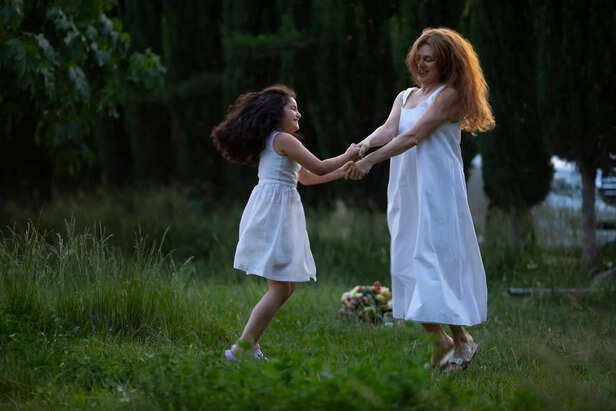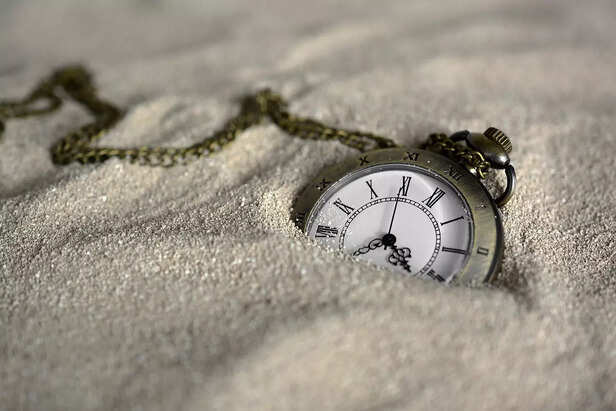Is Time Really Moving Faster, or Are We Just Growing Older?
Megha Jangra | Sep 18, 2025, 05:18 IST
Playing on swings
( Image credit : Pixabay )
Many people feel that childhood summers lasted forever, but adulthood years vanish in a blink. This article explores why time seems to move faster as we age. From psychological theories like proportional time and novelty, to scientific explanations involving brain chemistry and memory, we uncover the real reasons behind this phenomenon. The article also offers practical tips to slow down our perception of time, through mindfulness, new experiences, and breaking routines along with cultural and spiritual insights on living more fully in the present.
Remember how endless summer vacations used to feel in childhood? A month felt like a year. But now, as adults, even a year seems to pass in a blink. Many people often say, “The older I get, the faster time flies.” But why does this happen? Is it just in our minds, or is there a deeper explanation? Let’s explore both the science and psychology behind it and what we can do to slow things down.

For a child, every experience feels new first day of school, first bicycle ride, first trip with family. These unique experiences fill the memory with detail, stretching time. As adults, however, our routines take over. Going to work, commuting, eating, and sleeping on repeat makes days blur together, and time feels shorter.


Scientific studies show that our brain chemistry and body rhythms strongly influence how we perceive time. Dopamine, a neurotransmitter linked to motivation and pleasure, also affects time perception. When dopamine levels are higher, time tends to feel like it is moving more quickly. On the other hand, lower dopamine levels can make moments feel slower. Biological processes such as metabolism and heart rate also play a role. Children, with their naturally faster metabolism and quick heartbeats, often experience time more vividly, while adults with slower biological rhythms perceive it as moving faster overall.

It’s not just older people, students, young professionals, and even teenagers feel time rushing today. The “hustle culture” and screen-driven lifestyle make days feel repetitive. Scrolling endlessly on Instagram or juggling assignments and work deadlines creates less variety in memory. That’s why many youths often say: “Where did this year even go?”

The good news is yes we can trick our minds into stretching time:
Many spiritual traditions also talk about time not as a clock, but as an experience. Ancient Indian philosophy sees time as “kaal” both a cycle and a flow. Spiritual practices like meditation slow down our racing minds, making us feel more connected to the present. This may explain why people often say meditation makes life feel calmer and longer.
Time doesn’t actually move faster as we grow older it’s our perception that changes. Childhood feels longer because of novelty, awareness, and proportion. Adulthood feels shorter because of routines, stress, and less attention to the present. The key to slowing time isn’t stopping the clock it’s filling our days with moments worth remembering. After all, life may be short, but it can feel beautifully long if we live it fully.
FAQs(Frequently Asked Questions)
Childhood vs. Adulthood: The Contrast

Moments That Stretch Time
( Image credit : Pexels )
For a child, every experience feels new first day of school, first bicycle ride, first trip with family. These unique experiences fill the memory with detail, stretching time. As adults, however, our routines take over. Going to work, commuting, eating, and sleeping on repeat makes days blur together, and time feels shorter.
The Psychology of Time Perception

Measuring Moments: The Mind’s Hourglass
( Image credit : Pexels )
- Proportional Theory: When you’re 10 years old, one year is 10% of your life. At 40, it’s only 2.5%. So naturally, each year feels shorter compared to the whole span of your life.
- Novelty and Memory: Our brains record time based on new experiences. The more new things we experience, the longer time seems. Routine life creates fewer “bookmarks” in memory, so time feels like it’s slipping by.
- Attention and Awareness: Children pay more attention to the present moment, noticing small details. Adults, burdened with responsibilities, often live on autopilot missing out on the richness of “now.”
Scientific Explanations

The Brain’s Pathways: Mapping Time
( Image credit : Pexels )
Scientific studies show that our brain chemistry and body rhythms strongly influence how we perceive time. Dopamine, a neurotransmitter linked to motivation and pleasure, also affects time perception. When dopamine levels are higher, time tends to feel like it is moving more quickly. On the other hand, lower dopamine levels can make moments feel slower. Biological processes such as metabolism and heart rate also play a role. Children, with their naturally faster metabolism and quick heartbeats, often experience time more vividly, while adults with slower biological rhythms perceive it as moving faster overall.
Why This Affects the Working Class & Youth Too

Lost in the Fast Lane
( Image credit : Pexels )
It’s not just older people, students, young professionals, and even teenagers feel time rushing today. The “hustle culture” and screen-driven lifestyle make days feel repetitive. Scrolling endlessly on Instagram or juggling assignments and work deadlines creates less variety in memory. That’s why many youths often say: “Where did this year even go?”
Can We Slow Down the Feeling of Time?

Slowing Down the Sands of Time
( Image credit : Pixabay )
The good news is yes we can trick our minds into stretching time:
- Add Novelty: Try new hobbies, travel to new places, or simply change your daily route. New experiences create more memories.
- Practice Mindfulness: Slowing down, noticing your food, your surroundings, or your breath helps you anchor in the present.
- Break Routine: Even small changes like cooking a new recipe, joining a class, or exploring a nearby café can make days more memorable.
- Limit Digital Overload: Spending hours on social media reduces real-world memory-making. Swap screen time for real experiences.
- Celebrate Small Moments: Journaling, taking photos, or reflecting daily can help you “record” time instead of letting it vanish.
Cultural & Spiritual Perspective
In the End
FAQs(Frequently Asked Questions)
- Why do vacations or holidays feel shorter than regular days?
Because vacations are filled with exciting and new activities, our brain compresses these memories when we look back, making the time feel shorter than it was. - Do dreams affect how we perceive time?
Yes, dreams can distort time perception sometimes they feel very long even though they last only a few minutes in real time. - Is there any scientific way to measure how people perceive time?
Researchers use tasks like estimating intervals, reaction tests, experiments to study how individuals sense the passage of time. - Why does time feel slower during boredom?
When we are bored, our brain has fewer stimuli to process, making us focus more on the ticking of time itself, which feels slower.
